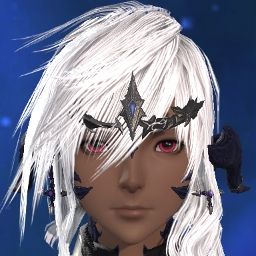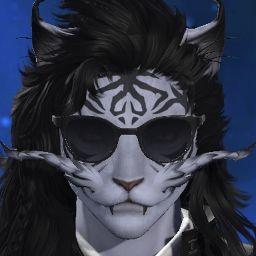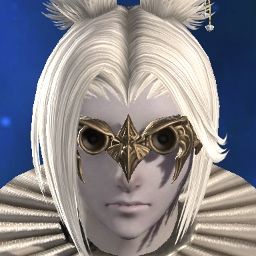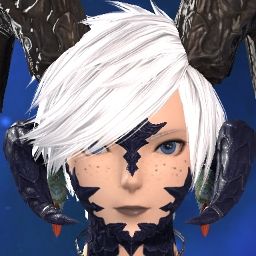Rolling into the party mega late here but... when does the story ever paint him as a hero? I didn't get that impression at all. There's absolutely nothing heroic about anything he does, and I don't recall him ever even claiming to be heroic at any point. His (almost) final words to us were something along the lines of making a world where heroes aren't needed - he seems to have come to detest the very concept of the hero.
I didn't feel like they ignored the implications of what Emet did to Vauthry and his mother. That whole segment was horrifying. What he did to them was horrifying, there's no denying that, and I didn't get the impression that the story was trying to.
What the writers did was give Emet motives and drive, reasons for his choices and actions - ends that he felt justified his means. He's committed countless atrocities, for a cause he felt justified that cost. I've said it before somewhere on here, but I genuinely didn't get the impression that he honestly believed all those lives were worthless. Maybe I was reading into it, but I think a far more interesting interpretation is that Emet had to convince himself that they were worthless. Because if they were worthless, then the wholesale slaughter of millions doesn't mean much - they were just ants, after all, so he doesn't have to face what he's done or what he's become. From our (character's) view, that's probably full on delusional and arguably evil, but that reasoning is what makes him an interesting character imo. He's a villain, and a monster, but he's a monster who thinks he's right.
At the end of the day Emet's death was necessary, but imo his story - his people's story - absolutely is tragic.
Edit to add a bit: What got from the story was that Emet was an ancient, bitter, angry old man who'd convinced himself he had no choice but to carry the weight of his peoples lives and memories on his shoulders, and that the only way to honor that memory and to restore the world he'd lost was to utterly destroy the new one that had been created. What happened to his people was horrific, and he's suffered horrible loss, and if taken entirely by itself his goal could even be called noble - to bring his people back to life. His logic is twisted, warped by the belief that his people are better, more valuable, more perfect, and that the new life of the new world is unworthy to take up their mantle. And the impression I got was that the writers were saying yes - this is horrible, and tragic, but this does not justify his actions. His people are not better or more valuable - they are just as flawed and imperfect, just as capable of mistakes and bad choices and hubris and arrogance, as we are. Emet-Selch is wrong. That's the message I got from his story. Not that he should be hailed as a hero.
Thread: Emet-Selch Is Not That Tragic
-
11-16-2019 01:33 PM #121Player

- Join Date
- Sep 2015
- Location
- Gridania
- Posts
- 1,724
- Character
- Avi Taro
- World
- Behemoth
- Main Class
- Bard Lv 100
(5)Last edited by Avidria; 11-16-2019 at 01:40 PM.
"Run when you have to, fight when you must, rest when you can." - Elyas Machera, The Wheel of Time
-
11-16-2019 02:08 PM #122Player

- Join Date
- Sep 2015
- Location
- Gridania
- Posts
- 2,748
- Character
- Crushing Fatigue
- World
- Balmung
- Main Class
- Scholar Lv 70
One of the only times I remember it happening, and please I welcome corrections because it's been four months, was in relation to his fellow ancients. "The victor shall write the tale and the vanquished shall become it's villain," is a line he uses right before the final battle and I think it provides all the context one needs in these regards. To the ancients who willfully agreed to sacrifice themselves and to those who believed that the star should be nurtured for another culling to bring the sacrificed back, his actions would be seen as heroic. Especially considering how self-centered that race was presented to be. Not only because he would be reviving his people but because even if he revived those who disagreed, he and his fellows could present /any story/ they chose to them and be the heroes of this particular tale. A bit of 'history is written by the victors' in that regard.
Not that it'd really matter either because we already know the ancients were pretty self centered to begin with in a sort of 'bless your heart' sort of way. They didn't want to help the other cities when they were facing their own calamities, and those that spoke out in favor of aid did so under selfish pretenses. While a portion did eventually lead to the creation of Hydaelyn to end the potential culling of non-ancient life for Zodiark's purposes they, again, could be fed any tale the Ascians wanted at the end of the day and what would it matter? The sacrifices were already made and the Scions and their ilk trussed up as villains in legend, trying to prevent the undoing of what the ultimate villain Hydaelyn had done to their world.
About the only place the game uses the word hero for him is in regards to his Extreme but that's being presented via the eyes of an NPC who by their own admission doesn't understand what happened and who will simply try to give the tale it's own spin. Yes the NPC is a stand in for Yoshi-P but when the rest of the narrative is practically beating you to death with how Emet is the living embodiment of 'the road to hell is paved with good intentions' I can't really go as far as that meaning the story itself is giving that same endorsement.(3)Last edited by Enla; 11-16-2019 at 02:17 PM. Reason: context clarification
-
11-16-2019 02:42 PM #123
@Avidria - The Minstreling Wanderer and the description for Hades EX both call him a "hero" several times. And while I absolutely agree on the fate of his people being tragic, and I am all for remembering them, for Square to describe his deeds as heroism was jarring.
In some places in the story it felt to me like the writers were pushing sympathy for him a bit too much, and the "hero" talk when the EX was released only added to that feeling. He certainly could have been trying to delude himself--his backhanded way of speaking to us never made me feel like he was conflicted or trustworthy, though, and his actions definitely didn't give me any impression of hesitation. I do agree there was no debate among the characters that his methods were monstrous, and his atrocities were atrocities--unlike in this thread, lmao.
The problem I have with the aftermath of Vauthry's arc is that the writers never permit us to reveal the truth we saw with the Echo. Like last patch, the old mayor's adviser spoke of how Vauthry's father was essentially the "good old days" of Eulmore. It was a perfect time to tell the truth! But we just smiled and nodded. It doesn't feel heroic. We set the record straight for the Warriors Of Darkness, but we leave Vauthry to be reviled for a fate he didn't choose and couldn't fight, and we leave his mother to just be silently forgotten, as she was when Emet-Selch and her husband discussed using her body and her infant as incubators for a Lightwarden while she looked on in fear.(2)Last edited by Puksi; 11-16-2019 at 03:24 PM.
-
11-16-2019 03:04 PM #124Player

- Join Date
- Sep 2015
- Location
- Gridania
- Posts
- 1,724
- Character
- Avi Taro
- World
- Behemoth
- Main Class
- Bard Lv 100
Huh... didn't even realize that til just now. Seems very odd actually, considering the tone of the rest of the story. The minstrel is wont to... embellish... but yeah. Definitely didn't get that impression anywhere else.
But yeah no he definitely never came off as trustworthy to me - even if he was telling full truth the whole time, it was still truth from his perspective based on what he knows and feels, and still warped by thousands of years of bitterness, grief, death, and failure. What made me kinda side eye him and wonder if he really believed what he said about our lives' value was the casual offhanded way he said it to make a point - it came off as deliberate antagonism more than anything - and then the way he reacted to us in the lead-up to the final fight. He came off to me as someone who'd maybe wanted to be wrong, and was disappointed we didn't meet his wild criteria to prove him wrong and prove we aren't worthless. ...I'm very tired so may not have worded this quite how I wanted to but that's the gist of that thought process.
Looking back I do wish we had more closure on things like what happened to Vauthry - though there are actually a lot of things from ARR to now that I really wish our character had reacted or acted differently in response to. There's a lot there that should be said or done that isn't, and the other way around, and yeah... I'm kinda hoping the Vauthry thing does come up again at some point. 'Cause that was messed up for sure.
Hmm yeah that's a fair point too. I guess that sorta does go back to his moral relativism comment - whoever wins gets to decide who was right, and what story gets told. He probably would be seen as a hero by the ones who were already planning to sacrifice all this life to bring their people back to begin with - he'd have basically done what they were going to do anyway, just... more violently. Even among the Ancients, though, not everybody felt that way - that's how we got Hydaelyn in the first place. But they're dead and he isn't, so he's taken it upon himself to decide who's right and whose lives are most important.
He's a bit of a hypocrite, really.(3)Last edited by Avidria; 11-16-2019 at 03:14 PM.
"Run when you have to, fight when you must, rest when you can." - Elyas Machera, The Wheel of Time
-
11-16-2019 03:11 PM #125
So ive always felt the plan they had for reviving all of their civilization was not really thought out. We ARE the souls of the Amaurotines, fragments of them as theyve very plainly told us. If you feed our aether to Zodiark what exactly are you bringing back? You think hes just going to give up all the power he gains from souls and release them back? The sacrificed life forces originally are what allowed him to even take form and Emet wants ALL of them back. Now Emet admits that all the ascians were tempered if you talk to him in the Solar after one of the cutscenes so im not sure if this has some bearing on his ability to think of these angles because Zodiark would want resurrection and wouldnt want that kind of questioning.
(2)
-
11-16-2019 07:22 PM #126Player

- Join Date
- Oct 2012
- Location
- Limsa
- Posts
- 488
- Character
- Elai Khatahdyn
- World
- Omega
- Main Class
- Scholar Lv 90
I'm interested to see where I have excused anyone from anything, please could you quote those sections back to me?
At no point have I ever said anything about Hades not doing some terrible things. Nor have I argued that we shouldn't have killed him. In the circumstances as they played out, we had no choice. My argument was rather aimed at the moral absolutism you claim to embrace but refuse to apply to other characters, apparently for the rather simple reason that you like them and you don't like Hades? You also appear to be attacking both those who do like Hades character and the writers who created him. Most of the characters in this tale, including our own, do very morally questionable things, but you're not holding any of them to the same standards. That's my objection to what you're saying.
I'd also like the point out that G'raha Tia's actions MAY have created two timelines - we don't actually know yet - but he certainly didn't know in advance that they would since he expected to die. So why isn't he a monster who intended to condemn thousands of people to oblivion regardless of their wishes on the subject?
I am just asking you to use the same moral standards for everyone, but you don't seem to want to. Or to agree that yours is just a point of view that differs from other points of view in the matter of Hades as a character and that both are equally valid.(5)Last edited by Elladie; 11-16-2019 at 07:30 PM.
-
11-16-2019 07:31 PM #127
I looked the term up a bit more and interestingly its about the cultures itself. So can we really claim this term for solo people? Can we really say that in the morality of the Ancient ones Emet and the Ascians actions would be right?
What if the Ancients morality also includes not murdering sapient beings? This would make Emet the bad guy and wrong in their culture too. And seeing how quite a few reacted (enough to create Hydealyn) then I doubt that murdering all those beings on the shards would count as right for them...and again we cant ignore their part of the plan that includes whole souls thus people that are alive even in their warped view. Souls that would be their own people too just with the missing memories. I have a really hard time seeing their culture being fine with that.
So no I dont see the story as showing us that both sides are right. They hit us over the head with the message that we should walk on for those that come after. Heck they made a mini arc about this very theme with Thancred himself.
There are stories out there that show this moral construct in a good way (Attack on Titan for example) but this game is imo not one of them.
Yeah I doubt that the term "health" would have come up if we all just said something positive about his actions. I mean its seemingly normal that people say that they miss character x but when someone goes into a deeper discussion about the faults of a person and if that makes him a bad person even in the standards of the ingame morality then its not healthy? Isnt it not healthly too to post about games at all?
Stories are written to create emotions in us. All those people crying tears when something sad happens in a video game, movie or book must be unhealthy too because those are not real people, right?
I agree with that thus I believe that they might have never made this plan if they had not been tempered.
I mean these people sacrificed themselves willingly so that their rest of their city can live on. Instead of just accepting their sacrifice they suddenly turn around after everything is done and talk about the plan and if we take what Hythlos says as true then it were the Ascians who created that plan to beginn with after everything was save. So the people that got tempered created a plan that would give their "god" (and its interesting that Lahabrea calls him a god even though Zodiark is a construct of their own making thus 100% no god) more aether. It could be that it was part of their own grief to do that but at the same time they already knew death and at least in the short story its made clear that they had no problem with death. And suddenly that changes?
In the end Emet seemingly only cares about those lost souls while either ignoring or not caring about the consequence of now sacrificing the source people too after all the rejoinings happened. These people would have souls from ancient beings which includes people from Amaurot and also those that survived the calamity...that means he wants to sacrifice the people that the other sacrificed their life for so that they can live on..he is trampeling on the wishes of those that gave their life to protect the few that would survive it..and its not like it would have been the end of their race. They know what children are. They could have reproduced and since the also had a lifestream at that time, the people that died in the calamity would have been reborn with time. And at the same time they could have made those that are used as fuel for Zodiark into heroes that will be remembered forever.(0)Last edited by Alleo; 11-16-2019 at 07:57 PM.
-
11-16-2019 08:38 PM #128Player

- Join Date
- Jan 2013
- Location
- New Gridania
- Posts
- 1,712
- Character
- Aribeth Lightbringer
- World
- Behemoth
- Main Class
- Gladiator Lv 90
he save the people that you agrue that he killed see he go back to past to prevent their death that would come for people fight over resource that slowy become less and less not only save them but he prevent a fall of nations. see time travel is interest thing here G'raha by prevent the 8th umber he has save million include the very people that attack the Ironworks. the difference it Hades destroy Million in pursuit think he would save million yet that hasn't been prove. Zodark could be as I am theorical a deity that consume life aether has become addict to it. notice that every time they gave life aether to Zodarck it made the problem worst.
what was taught for this expansion was the dangerous of shade of grey belief because ascian are able excuse they they where one decide to make Zodarck by this they chosen they action creator they god and feed they god not make thing better. each part of expansion show us how they action made them more evil and not less seem and how they action can be excused them. good and evil is difference between life and death.(1)Last edited by Savagelf; 11-16-2019 at 09:09 PM.
-
11-16-2019 10:01 PM #129Player

- Join Date
- Jun 2016
- Posts
- 150
- Character
- Roland Umbrosus
- World
- Brynhildr
- Main Class
- Reaper Lv 100
Do we really have people in this thread calling a genocidal rat 'innocent', 'a good guy, actually' and calling genocide 'moral absolutionism'? Goodness. This was the kind of stuff I was worried about ever since we learned more about Emet-Selch and the Ascians.
I completely agree with Puksi about how the writers are selective with who gets sympathy. We get to sympathise with the devil, but not his victims? Smh.(3)Last edited by FedoraTheExplorer; 11-16-2019 at 10:09 PM.
-
11-16-2019 10:08 PM #130Player

- Join Date
- Oct 2012
- Location
- Limsa
- Posts
- 488
- Character
- Elai Khatahdyn
- World
- Omega
- Main Class
- Scholar Lv 90
@ Savage Elf
But he DOESN'T save those people in the future. By changing the past, he prevents them even existing, and they did not support him doing this.
Now it has been suggested that events ended up in a second time line being created which may turn out to be true. In which case they didn't cease to exist but they are still doomed to deal with the desperate consequences of the Eighth Calamity. So G'raha hasn't helped them at all, he's just abandoned them. More importantly, G'raha had NO IDEA this would happen. He carried out his plan expecting to die himself but knowing FULL WELL he was ending everyone in the future. I think you misunderstand how far in the future that is, it's not just a couple of months, it's many years later, generations later. All those people go POOF and cease to be, and G'raha knew that. He still chose to do it.
Please explain how that's any different to Zodiark/Hydaelyn/the Convocation/the Ascians actions? All of them chose a path to follow that saved one thing at the cost of another(3)Last edited by Elladie; 11-16-2019 at 10:11 PM.





 Reply With Quote
Reply With Quote









